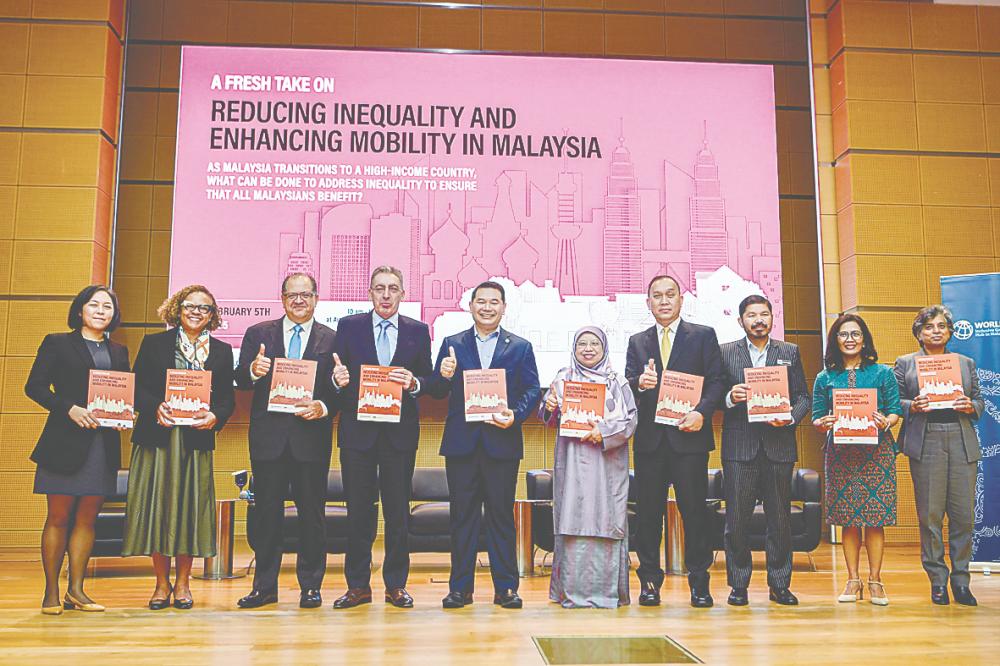KUALA LUMPUR: Malaysia is on track to meet its 2025 gross domestic product (GDP) growth target despite the US-China trade war on the back of drivers that include chip demand supporting medium to long-term prospects, said Economy Minister Datuk Seri Rafizi Ramli.
He noted that key hypotheses that have driven interest in the Malaysian economy over the past year remain unchanged.
“The projection that the world is going to be more digital and AI is going to be mainstream has not changed. That means the demand for chips will go up, which will bolster Malaysia’s trade. Malaysia’s long-term plan to ensure that Malaysia plays a pivotal role in the global supply chain has not changed either,” he told reporters after the launch of the joint report by the World Bank and the Ministry of Economy titled “A Fresh Take on Reducing Inequality and Enhancing Mobility in Malaysia” today.
Rafizi said the stronger ringgit over the last week indicates that investors and market participants have a positive outlook on Malaysia’s economy. “It’s (the strengthening ringgit) very much the function of the market because of the evolving and developing nature of the trade war that is happening now,” he said.
He explained that market expectations, speculation and projections will inevitably impact the ringgit’s movement.
“So, I think we have to navigate some changes and volatility. I hope it is not going to be extreme,” Rafizi said, adding that the government is monitoring the situation closely, with the Ministry of Investment, Trade and Industry (Miti) tasked with evaluating the trade war’s potential impact.
“We will take guidance from Miti on our official stance. As of now, there is no discussion on revising Malaysia’s economic growth outlook. Typically, the government’s growth forecast is finalised and shared closer to the budget unless there are drastic developments,” Rafizi said.
He opined that adjustments and volatility will be a permanent feature of the global economy as more economies become influential in the overall global supply chain.
“We will have to go through some adjustments and volatility. The question is whether it will be short- or medium-term. Eventually, the market will price in everything, provided that our fundamental growth narrative remains strong. And at the moment, I believe we still have a very strong value proposition for the world,” he said.
Meanwhile, Rafizi said the Carbon Capture, Utilisation and Storage Bill is expected to be tabled in Parliament by early March, pending final drafting and stakeholder consultations.
“The target is to be tabled in this Parliament sitting. We are going through some final drafting. We’re going through some improvements based on feedback from stakeholders. The target is to finalise and bring the Bill to Parliament in this session.”
The joint report highlights the importance of building on progress to ensure that everyone benefits. Strengthening access to quality education, healthcare and employment opportunities will be key to ensuring that economic prosperity is shared by all.
“To address inequality, we have to adopt a holistic assessment, early intervention on opportunity gaps, and commit to creating a dynamic labour market,” said Rafizi.









